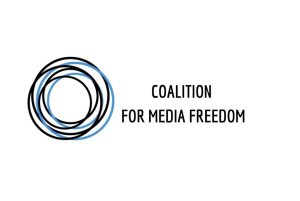The German trade union and journalists’ association DJV and dju inver.di have secured an average wage increase of 10.5 percent in three phases until the end of 2027 for daily newspaper workers. The agreement was reached in July 2025 after the tenth round of negotiations between the union and the publishers’ association BDZV, and applies retroactively from January 2025. The negotiations were accompanied by 36 nationwide strikes, which played a key role in reaching the agreement. Freelancers and young journalists will particularly benefit, with their salaries expected to increase by up to 16% over a three-year period.
The German newspaper market, which includes numerous local, regional and national publications, is facing the challenges of digitization, consolidation and the increasing use of artificial intelligence. In this context, it was also agreed that discussions on updating the copyright clause and the regulation of the use of AI technology in editorial offices will continue.
We spoke with DJV’s chief negotiator, Christian Wienzeck, about the agreement reached, the role of DJV, future steps and challenges for journalism.
How do you assess the agreement given the demands that the DJV advocated during the negotiations?
The DJV’s demand for a 10.5 percent increase was based on various factors, such as the loss of income due to price increases over the past three years, the continuous increase in work intensity in publishing houses and the decline in the number of registered workers. This led to a demand that was quite high compared to previous negotiations, but still justified. The fact that we have now actually managed to achieve an average wage increase of exactly this 10.5 percent over a three-year period is a great success that our colleagues have worked hard for and deserved with their strikes.
What was the specific role of DJV in this process and how did you coordinate the efforts with the ver.di union?
In my opinion, it is difficult to separate the roles of the unions involved in the recent negotiations. From the very beginning, the declared goal of DJV and ver.di was to jointly lead these negotiations and to join our forces both at the negotiating table and in subsequent industrial actions. Thanks to regular, very close coordination, both regionally among the strike organisers and between the negotiating teams, this mostly worked very well. However, the effort required over many months was enormous and placed a heavy burden on all involved.
Young journalists received the biggest salary increases. Does this reflect DJV’s strategic shift towards the next generation?
Young journalists play a central role in the DJV’s collective bargaining policy. We try to focus on the professional conditions for young colleagues in various areas – be it employment, training or salaries – so that journalism remains an attractive career option. The huge price increases of the last three years have particularly burdened lower-paid groups. The fixed-amount increases currently being negotiated address this negative impact and significantly counteract it.
What was the impact of the 36 strikes on the course and outcome of the negotiations?
It is difficult to make a reliable statement retrospectively about which strike at which location had a concrete impact on the respective state of negotiations. This is all the more true given that the strike was launched in several “waves” of varying lengths between January and July. However, what can be said with a high degree of certainty is that, especially in the second half of the negotiations, i.e. between April and June, large-scale measures, some of which lasted up to five days, brought a noticeable shift in the negotiations. During this period, it was possible not only to negotiate away the employer’s negative counterclaims, but also to achieve significant progress in terms of wage increases. This would certainly not have been possible without the strong commitment of our colleagues on the streets and a clear signal that we will continue to fight if necessary.
What challenges remain for journalists and unions after this agreement? Is there a risk that publishers will cut jobs in response?
First of all, we are pleased that we have reached such a good result after really difficult negotiations. This collective agreement is particularly important for trainees and young professionals – to keep the profession attractive. On the other hand, we have been complaining for some time that larger publishing houses are buying up smaller ones and that jobs are being lost as a result. The diversity of the press is suffering as a result. We saw this with Gruner & Jahr, which RTL bought a few years ago – to name just one example. However, the causes are generally rapid digitalisation and the use of artificial intelligence. The answers to these challenges need to be found in time – but we are already in discussions with publishers about this.
How does DJV plan to continue the fight for better working conditions in the face of digitalisation and increasing pressures on editorial teams?
We as DJV will not be able to change the circumstances, but we will monitor the process of introducing artificial intelligence as best we can and continue to be a reliable point of contact for media professionals. Our main task as a professional association and trade union of journalists remains to advocate for fair wages and working conditions – regardless of the challenges the industry will face in the coming years.
Is there a plan to continue working with publishers to ensure sustainable working conditions in the industry?
In the latest round of collective bargaining, the unions involved, the DJV and dju in ver.di, together with the publishers’ association BDZV, agreed to further discussions on updating the copyright clause and the use of artificial intelligence in the editorial offices of daily newspapers. The business models of publishers are working worse and worse. Technological monopolies are putting pressure on the EU and as a union we are trying to influence legislators to create a reasonable framework for the protection of journalistic content – especially when it comes to AI review, for example. Fundamentally, however, it always depends on how AI is used: if used wisely, it can make the work of journalists easier.
What message would you like to send to young people today who are considering a career in journalism in Germany? And what would you say to fellow union leaders across Europe?
I would like to tell them that an exciting profession awaits them. Especially in these challenging times, we need critical journalism more than ever – journalism that stands up for press freedom and strengthens our democracy. The agreement on salaries is therefore an important step in the right direction, so that the profession remains attractive to young people! And to the union leaders, just a message that the difficult negotiations, supported by committed members, have finally paid off.
Source: EFJ




